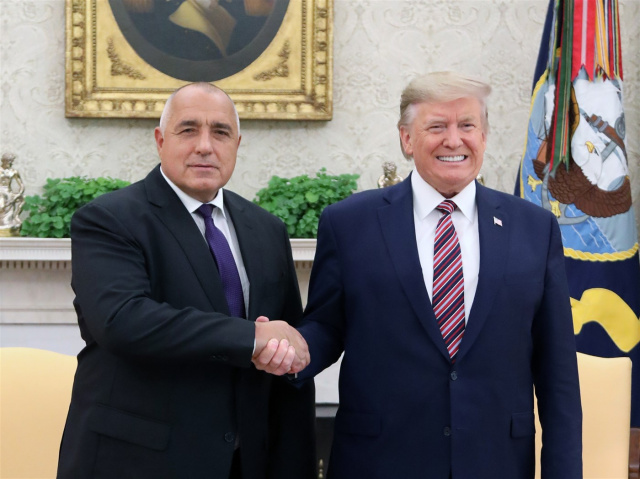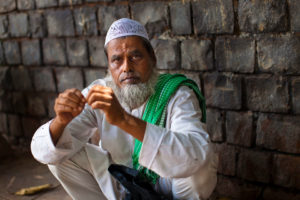GERB Leads Election with 68 Parliamentary Seats

Bulgaria: GERB Leads with 68 Deputies as Election Commission Confirms Parliamentary Seats
The Central Election Commission (CEC) has announced the mandates for the parliamentary parties in the 50th National Assembly of Bulgaria. GERB will have the most deputies, with a total of 68. The second-largest parliamentary group will be the DPS with 47 deputies, followed by “We Continue the Change – Democratic Bulgaria” (WCC-DB) with 39. “Revival” will have 38 deputies, while the Bulgarian Socialist Party (BSP) will have 19.
The “Greatness” (Velichie) party will have the smallest parliamentary group, with 13 deputies. “There is Such a People” (TISP) will have 16 representatives, though their leader, Slavi Trifonov, will not be among them, as he was removed from the candidate lists by the CEC after submitting an application.
The CEC also reviewed and approved the analysis of inconsistencies after re-entering and comparing data from the sectional election commissions with the district commissions. Four elected members of the European Parliament have opted to remain as MEPs instead of joining the National Assembly: Hristo Petrov from WCC-DB, Ivaylo Valchev from TISP, Kristian Vigenin from BSP, and Stanislav Stoyanov from “Revival.” The CEC has fulfilled their requests and removed them from the parliamentary lists.
The US Plans Cooperation with Bulgaria

The US plans to deepen its cooperation with Bulgaria, Moldova, Georgia, Ukraine and Romania. This is clear from the “Black Sea Security Act” introduced in the US Congress.
The document states that the priority will be activities such as intelligence and monitoring of Russian operations in the Black Sea region, the creation of an international headquarters to be responsible for the planning, preparation, implementation and coordination of multinational military forces. Fighting Russian disinformation with the support of the United States is also part of the priorities.
The document recognizes the Black Sea region as an arena of Russian aggression and declares that it is in the interest of the United States to support efforts to prevent the spread of further armed conflict in Europe.
The US ambassador to Bulgaria, Kenneth Merten, recently recalled the document, saying that the document will focus the issues of the region, because there are serious problems in certain parts of the Black Sea.
The second 10 days of the extended Russian military exercise in the economic zone of Bulgaria are currently underway.
Cup & Cross Ministries Shares the Love of Christ with Bulgarian Sunflower Seeds in Polk County, TN

by Kathryn Donev
Sunflowers are so much fun. They are actually thousands of tiny flowers that bring joy in many ways. It’s neat to watch them follow the sun because of a trait called heliotropism. Eating sunflower seeds can lower rates of cardiovascular disease, high cholesterol, and high blood pressure. They are a good source of many vitamins and minerals that can support your immune system. And did you know that a sunflowers destroy contaminants of its surrounding soil, water and air?
Although sunflowers are Native to North America, Bulgaria is among the top 10 sunflower producing countries. As in various places in Polk County, Bulgaria is famous for their golden fields. And believe it or not, you can find Bulgarian sunflower seeds in any Dollar General labeled with the Clover Valley brand. When we were ministering together with Feeding God’s Lambs Summer Program at First Baptist Benton giving a presentation about the 6 Senses of Bulgaria, the kids even got to taste some. Fun.
With a multisensory trip to Bulgaria, we shared how the Holy Spirit is our Sixth Sense to guide and direct us in life and found in everything we touch, see, hear, smell and even taste. When we all come together, we can do great things, just as with the thousands of tiny flowers that come together to have the appearance of a unified flower. Let us be a purifier of our environments and always be reminded to follow the SON. Being consumed with the sixth sense of the Holy Spirit is good for the soul.
BULGARIA represented with 5 lemmata in the printed BEGP
Brill’s Encyclopedia of Global Pentecostalism (BEGP) provides a comprehensive overview of worldwide Pentecostalism from a range of disciplinary perspectives. It offers analysis at the level of specific countries and regions, historical figures, movements and organizations, and particular topics and themes. The published volume is now available along with the online version of the Encyclopedia
BULGARIA with a NEW Caretaker Cabinet until July
World Wires on Bulgaria: Caretaker Cabinet Will Have to Tackle Pandemic, Ensure Fair Elections
Bulgaria‘s President Rumen Radev called a snap parliamentary election on Tuesday for July 11 and appointed Stefan Yanev, his close security and defense adviser, as caretaker prime minister until a new government is formed.
The European Union’s poorest member state is heading to the polls again three months after an inconclusive election in April resulted in a fragmented parliament that failed to produce a government.
Yanev, 61, who was a deputy premier and defense minister in the first caretaker government Radev appointed in 2017, will be tasked to manage the coronavirus pandemic and ensure a fair election, the president said in a statement, confirming an earlier report by Reuters.
President Radev is a harsh critic of long-serving prime minister Boyko Borissov.
Yanev’s government will also have to decide whether or not to submit a national plan to Brussels on how Sofia plans to use more than 6 billion euros from the EU’s coronavirus Recovery Fund.
In charge of the country’s finances will be Assen Vassilev, 43, a graduate of Harvard University, who served as caretaker economy and energy minister in 2013. Vassilev was part of the team that prepared Radev’s proposals for projects to be financed with EU recovery funds.
Borissov’s incumbent center-right GERB party again emerged as the largest party after the April vote, but it had lost seats due to popular anger against entrenched corruption and was shunned by other parties for a coalition government.
After Borissov failed to form an administration, so too did attempts by a new anti-elite party led by TV host Slavi Trifonov, and by the third largest party, the Socialists.
Analysts say the fresh election in July is likely to produce another fragmented parliament that could complicate the formation of a government. A recent opinion poll showed Borissov’s GERB and Trifonov’s ITN (There is Such a People) party running neck-and-neck.
Call for Parents and Caregivers to Have Time of Uninterrupted Play with Their Children
As a Board Certified Licensed Professional Counselor with nearly 20 years of experience in the field of play therapy, I understand the vital importance of play in the life of a child. With the COVID-19 pandemic which has swept the world, our children are being exposed to stressors and events that no child should ever have to endure. Children need play in their lives now more than ever before. Play is their only way to communicate and to process these traumatic times. A time of play allows for children to increase their emotional strength and reduces stress which in turn increases our children’s immunity defenses.
It is for this reason that I feel the urgency to call all parents and caregivers to set aside a minimum of 45 minutes to 1 hour during the day to play with their children. This structured time should meet the following guidelines:
- If possible should be one parent with one child at a time even if you have to limit play to only 30 minutes
- Play time is uninterrupted with no texting, social media, online surfing or phone use of any type
- Should be in a safe place
- Parents and caregivers need to offer a time which is non-judgmental in the parameters of protection
- Needs to be led by child and not adult, offering no suggestions about what or how to play unless asked from child
- Do not interrupt the child’s process by being impatient for child to finish tasks at hand
- This is not a time for teaching. It is a time of reflecting and empathetic listening of feelings.
- Repeat back to the child their actions during play instead of offering your biased insight.
- Listen to what your children are telling you via their play
- Provide unconditional love and support
There is always time for play. It should not be underestimated. During this time of crisis it is a basic necessity and will strengthen our children. We will make it through this together.
– K. Donev, LPC/MHSP, NCC
RAMADAN: How to reach Muslims with the Gospel?
Over 1 billion Muslims around the world are now observing Ramadan, a month of fasting and reflection. While most adherents to Islam are spending their holiday on personal discipline and dedication, more extreme factions are using the time of year to call for violence against Christians.
Ruth Kramer of Mission Network News reports:
“During Ramadan, the jihadists are calling for holy war. They’re calling it kind of an obligatory act of worship. What you typically see during Ramadan is a real spike in the violence. On the day that Ramadan began, jihadists attacked a bus that was filled with Coptic Christians in Egypt and killed 29 of them; about half of those were children as young as two years old.”
In the face of such violence, as we’re bombarded by stories of increasing barbarism, how should the body of Christ respond?
“One of the biggest tools we have in our tool chest is prayer, and we just don’t know how to pray for Muslims, how to love Muslims, to come alongside them and say there is another way.”
“If we knew how to pray for Muslims, and we joined together in prayer, imagine what God could do through that.”
To help us learn to pray for our Muslim neighbors, Prayercast, a branch of OneWay Ministries, is hosting the Ramadan Prayer Challenge.
The campaign sends daily prayer notes directly to your smartphone, focusing on specific regions and concerns of Muslim people. They’re inviting Christians across the world to unite in prayer for the next month, to ask “with one voice that God would shatter the deception of Islam with the presence and truth of Jesus Christ.”
How to Evangelize a Muslim
- The testimony of the Gospels provides the most reliable witness to Christ. Preach the Gospel as it is! Do not soft-pedal around biblical terminology to please Muslim hearers. Be clear about what you believe and why you believe it. Know the Scriptures well, and know the confessions and what exactly you believe (catechisms). The more you know about your faith, the easier it is to talk with Muslims.
- There is no gospel in Islam. The Qur’an clearly contradicts the essence of biblical Christianity and rejects the triune nature of God, disfigures the biblical doctrines of the person of Christ and denies justification through faith on account of the work of Christ on the cross. While claiming to be the perpetual religion of nature and history, following in the footsteps of Christianity, it attempts to justify its claims by asserting that the Word of God, revealed in the New and Old Testament, is corrupted. Our apologetic discussion with Muslims should be to defend the Scriptures and prove that the Scriptures aren’t corrupt as Muslims claim. Our goal is to open up their minds a bit so that they can start reading the Gospels for an eyewitness or a companion of an eyewitness to the real Jesus.
- Always ask them the classic evangelistic questions. ‘What about your salvation?’ ‘Can you be certain of this?’ ‘If you were to die, can you be certain you’d enter heaven at some point?’ Their response is always, “No, I couldn’t be certain, nor do I care.”
- Most western missionaries are result oriented; instead you should be concerned about preaching the Gospel correctly (as it is). The essence of Muslim evangelism is accurate communication about sin and grace: simply and clearly. Talk about the law and the gospel, not about infralapsarianism and divine simplicity! Don’t compare the Bible with the Quran. That comes later!
- Always remember that you are talking to Muslims. Avoid the use of Christian jargon. Speak about real sin, real guilt, real shed blood! Do not be ashamed to use Jesus’ direct and indirect titles clearly such as ‘Son of God’ ‘Lamb of God’ ‘New Adam’ ‘I AM – YAHWEH’ ‘Savior’ ‘Almighty God’.
- Use tact and be charitable! Don’t talk about reprobation with a Muslim or a new convert who has just lost an unbelieving family member. Be kind and courteous! Many Muslims act and speak out of ignorance, not malice.
- Be sensitive to their past – if they’ve had a bad experience with Christians, missionaries or churches, struggled with a particular sin etc., be understanding and compassionate! Muslims hate self-righteousness, and rightly so! Do not soft-pedal the law and the guilt of sin, but make sure they understand that you are a justified sinner, not a self-righteous “know it all” who is here to correct them!
- Muslims will ask you many questions about your faith. Don’t feel like you have to answer all of their questions in one day. However, make sure they hear your answers to one or two questions clearly. Stick with the subject – don’t get sidetracked. When the conversation wanders, pull it back to center stage – the law and the gospel.
- Muslims will ask you to comment on their faith. Don’t go there; they will not benefit from your criticism (or feigned approval) of other religions. Your job isn’t to debunk Islam but to give a clear witness to the truth of the Gospel. Instead of letting them drag you into the topic, turn the tables and ask them questions. Let them articulate their own understandings of the religious themes you are discussing; let what you communicate be the plain truth of Christian doctrines without enumerating how Islam is wrong.
- The message of the Gospel offends Muslims. It is okay! Don’t worry! God will take care of the hearer. It is His message. Muslims will not convert to Christ if they are not offended by the message of the Gospel. Offend them by being very clear about the teachings of Christ!
- Do not use any ‘Muslim friendly’ bible translations. ‘Muslims friendly’ bible translations are very deceptive! They are not true to the original Scriptures. Muslims see it as a form of deception by missionaries!
- Muslim evangelism is not about winning an argument, but leading Muslims to Christ with the Gospel. Discussions may get heated and intense at times – that’s okay. But the purpose of Muslim evangelism is not to show why you are right and Islam is wrong. It is to communicate the truth of the gospel! The message is to be the offence! Not you!
- When Muslims are apathetic about sin – use the law. When Muslims have doubts or are skeptical – use basic apologetic arguments. When Muslims express guilt for sin – present the Gospel.
- Evangelism is about leading Muslims to Christ. Convincing non-Christians or Evangelicals that Reformed theology is true, falls under the heading of polemics. Don’t confuse the two.
- When talking to Muslims stick with what all Christians hold in common wherever possible. Leave the internecine fighting among Christians aside when talking to Muslims. A Muslim will not care so much about differences between the Catholics and the Protestants or Lutherans and Baptists. Issues such as the exact meaning of the Lord’s Supper or methods of baptism should be addressed later, during discipleship!
- Wherever possible, when talking to Muslims speak about Christianity as factually true – “Jesus did this,” “Jesus said this,” “people heard and saw him,” etc. Keep away from the subjective line of approach– “it works for me,” “this is how I feel about it,” this is my testimony.”
- Before meeting with your Muslim friends pray for wisdom.
- Muslims will respect the text you quote, but not your personal opinion. Trust in the power of God the Holy Spirit working through the word! Cite texts directly from the Scriptures with attribution. Jesus says, Paul says…. It will not help Muslims to hear your personal opinion on biblical issues. So, don’t say “I think,” or “it seems to me” or “I feel like…” Muslims interpret your thoughts, your take on things or your feelings as part of the corruption of the Bible.
- Don’t rush things with Muslims. Just because a Muslim is not ready to trust in Christ after one encounter does not mean that effective evangelism has not taken place. Pre-evangelism is equally vital. You may plant, but someone else may have to water! Always remember that it is not us who convert the Muslims to Christ but God Himself (in His time)!
- Remember that evangelism isn’t complete after you first present the Gospel message to a Muslim. Evangelism has to continue even after they repent and give their lives to Christ. They have to sit under the ministry of the Word. Evangelism of a Muslim is complete only after they are baptized, brought to the Lord’s Supper and sat under the preaching of the Word at church. In other words, evangelism never ends. Discipleship is evangelism.
- Treat Muslims as objects of concern, not notches in your belt! Establish relationships and friendships with Muslims whenever and wherever possible.
- Don’t forget that a prophet is without honor in his own home. The chances of Muslim converts leading their own unbelieving family members (or someone close to them) to Christ by themselves is remote. Encourage them as they give witness to what they have learned, but also pray for God to bring other people into the picture to help evangelize their families.
- Don’t force things. If your Muslim friends balk, ridicule and otherwise are not interested, back off. Find another time and place. If after repeated attempts to communicate the gospel, and someone still shows an unwillingness to hear what you have to say, “shake the dust off your feet and move on to a new town!”
- Be willing to get your Muslim friends the resources they need: be willing to provide them with a Bible (not just a New Testament), the right book to read, and certainly an invitation to your home and later an invitation to attend your church or to a Bible study, etc. Never ever use a Muslim friendly bible translation. These translations are a product of some western mission agencies without any support from the national churches who know their context best.
- Pray for opportunities to evangelize Muslims. Make sure to let your Muslim friends know that you regularly attend a church. Do not disconnect your evangelism effort from the church. Pray for your church – that God would bless the preaching of his word, that he would bring Muslims into our midst, and that he would bless the church with growth.
- You don’t have to become a practical Arminian to be a faithful evangelist! A Christian approach to Muslim evangelism simply means telling Muslims the truth in love without changing it. Trust that God the Holy Spirit will penetrate hearts and minds of Muslims with “the Gospel”
- Muslims love to sing Islamic hymns that tell the stories of the Quran. Islamic hymn singing is singing the words of the Quran. Show your Muslim friends some samples of Christian biblical songs with verses directly taken from Scriptures. In other words, sing the Bible to them! The role of music in human culture is to join people together. Biblically we are commanded to sing the praises of Christ. There are 694 references to singing or music making in Holy Scriptures. Participatory singing is a very significant matter biblically. There will be no singing in Hell, but the saints in Heaven will sing everlastingly. That is really amazing and remarkable! Let us show Muslims what we will be doing in Heaven.
- “Fear God and give Him Glory, because the hour of His judgment has come, and Worship Him who made heaven and earth, the sea and the springs of water.” (Rev. 14:7)
110 Years ago, the Azusa Street Revival Began with a Fast

On April 6, 1906 William J. Seymour and the faithful few gathered with him at the Asberry house, decided to engage in a ten-day fast while waiting on the baptism in the Spirit. The first baptism with the Holy Spirit would occur just three days later. Seymour himself would be baptized on the sixth day of the fast and on the seventh, which was Good Friday, Seymour and his followers leased an abandoned church property at 312 Azusa Street and begin cleaning it up. Easter was on April 15, 1906 when they held their very first Pentecostal service at Azusa Street. The rest is history…
Movement with a Message
![51DUWeyraBL._SY344_PJlook-inside-v2,TopRight,1,0_SH20_BO1,204,203,200_[1]](https://cupandcross.com/wp-content/uploads/2014/04/51DUWeyraBL._SY344_PJlook-inside-v2TopRight10_SH20_BO1204203200_1.jpg) It is an indisputable fact that the Pentecostal movement has experienced tremendous growth in the twentieth century. Very similar to the ministry of John the Baptist, the message of Pentecost has drawn crowds to the small mountain churches where in contrast to the rather primitive theo-praxis the power of God has been evident.
It is an indisputable fact that the Pentecostal movement has experienced tremendous growth in the twentieth century. Very similar to the ministry of John the Baptist, the message of Pentecost has drawn crowds to the small mountain churches where in contrast to the rather primitive theo-praxis the power of God has been evident.
Similar to the ministry of John, the powerful results of Pentecostalism are produced by preaching that may seem unreasonable. For Pentecostals, however, it is words of life. It is obedience to the Great Commission of Christ to preach the gospel to all due to determination deriving from realized eschatology of the already-not-yet Kingdom of Heaven. The reality of the message then becomes a reality of the Pentecostal community in which the believer lives and witnesses even to the point of martyrdom. What seems to be an unreasonable message to the world becomes the identity of the Pentecostal community.
A loss of the message then means a loss of identity. In order to protect its identity Pentecostalism strives to deliver the message and experience to the generations to come, forming a genuine Pentecostal catechesis. This is much similar to the educational strategy of John the Baptist and his discipleship formation. The restoration and reclamation of the past heritage moves toward preservation of the experience and message. The context of technological and scientific progress, affects the development of the Pentecostal movement transforming its original primitive purpose, theology and practices. The only way to preserve the power of Pentecostalism then is through preservation of its primitivism.
The Immature Mind and the Effects of Information Processing Associated with Indoctrination
 by Kathryn N. Donev, M.S., L.P.C.
by Kathryn N. Donev, M.S., L.P.C.
The following is a response to the most recent developments within Bulgarian laws dealing with Educational Reform making it mandatory that children begin attending public school at the age of four years old.
The mind of a child is an extremely fragile organism that is malleable with the potential to be molded into whatever a caregiver chooses. It is a great responsibility to raise children and much love and guidance has to be given in order for a child to become a healthy functioning part of any society.
Before age six, give or take a year or so, is when a child is most impressionable and is most influenced by learning information and forming realities and constructs. It is before age six that a child’s mind has most neuroplasticity, although our minds are always capable of change. It is during this period when reorganization of neural pathways and long lasting functional changes in the brain occurs as we take in new information.
When the immature brain first begins to process sensory information is when it is most malleable. Indoctrination can occur at great rates and if accomplished before the age of six, then these teachings are so deeply ingrained within that it becomes nearly impossible to change or re-wire the neural pathways which have been formed. Accordingly to neuroscientists, by the time an infant is two or three years old, the number of synapses in their brain is approximately 15,000 per neuron, which is twice the amount of an average adult. This gives insight into how absorbent and thirsty the brain is for knowledge. At the same time, a child’s brain is very impressionable without yet having the ability to rationally sensor the intake of information. Meaning, they will believe whatever a caregiver tells them because they have no other reason but to innocently trust at this early age.
Since a young child’s memory has not yet fully developed, learning takes place by being told and retold what to do. They have to be indoctrinated. And it is the greatest responsibility of a caregiver to choose the most appropriate principles and values to teach a child. By age three or four, the parent or primary caregiver still is their “external conscience,” reinforcing their memory of what they’re supposed to do.
According to Erikson’s stages of child development, it is around two-four years when a child enters into the “Will: Autonomy vs. Shame and Doubt” stage in which they encounter life and ask the question if it is okay to be themselves. This question is answered with how the world around them responds to their actions. This period of time is when a child, in gaining control over eliminative functions and motor abilities, will begin to explore their surroundings. If a parent is patience and encouraging, autonomy will be fostered within a child. A caregiver must encourage self-sufficient behavior in hope to develop a sense of autonomy in order to being competent to face life challenges independently. But if caregivers are too demanding, refusing to let children perform tasks of which they are capable, or ridicule early attempts at self-sufficiency, children may instead develop shame and doubt about their ability to handle problems. Now if it is the intent to diminish this fostering of self sufficiency, then it is right at the age of 4 when a child can be influenced to be dependent and self-doubting.
It is during the next developmental stage, “Purpose: Initiative vs. Guilt” that a child asks, “Is it okay for me to be proactive?” in attempts to master the world around them and learn basic skills. At this stage, the child wants to begin and complete their own actions for a purpose. The development of courage and independence are what set preschoolers, ages three to six years of age, apart from other age groups. During this stage, the child learns to take initiative and prepare for leadership and goal achievement roles. However, if a child is striped away from this ability to take initiative, then their purpose is stripped away.
A child has to be given times of self-taught or self-thinking in order to form within a sense of identity; personal and not corporative identity or knowing their true self. If this is not allowed, then confusion sets in and results in midlife crises. After for years having lived exactly how you have been instructed and after having believed all of what you have been told to believe, an awakening takes place that this perceived reality does not meet up with your real internal being and destined reality.
If a child is not allowed to think for themselves and explore on their own at this young age outside of systematic education, then they will never reach the stage of development which is known as “Competence: Industry vs. Inferiority”. The consequences are self-explanatory. Inferiority and doubt set in and this child becomes a product of the system and is void of internal motivation, will and desire to make a change for the betterment of the society. They become cogs in a wheel and the result of a communistic effort.
If we give over our children to a state school system at early and early ages, the parents’ rights are being stripped away. The choice to teach morals of right and wrong or beliefs is only available for a limited time and shared with an organization with limits. A child has no one to speak for themselves at such a young age and they will believe that the sky is green if they are told it is so. It is by around age six that normal children are developing an internal conscience. By age six, they have formed this conscience based on what they have been taught is truth, is right and is wrong. These first six years of development are the most crucial and should not be trusted to anyone else or any other organization that may have hidden agendas. If a child is asking if it is okay to be themselves and they are told it is not, but rather they have to be what a government or a society insists, then confusion arises.
Let children be children and the children that they are intended to become naturally and innocently void of any motive. Let us foster a society of thinkers with independent minds free to make choices. Democratic principles should be applied on all levels of society. We always hear of child rights including stopping physical and emotional abuse, but we rarely are faced with having to protect our children’s minds. Awareness is the first step in prevention and we have to at all cost, protect the rights of our children. Our children only have our mouthpiece to protect them…










